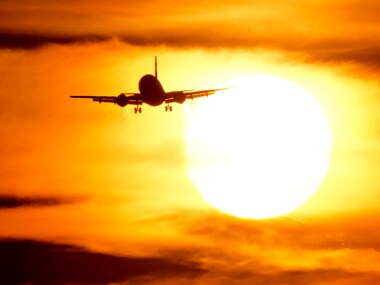New Delhi: Prime Minister Narendra Modi wants wide ranging public consultations before the cabinet takes a call on the controversial 5/20 rule. According to sources, Modi himself suggested that the fate of this rule be left in the hands of stakeholders in a three-hour meeting on Tuesday where the entire draft civil aviation policy was discussed with top officials from the ministries of civil aviation and finance. Any decision on the fate of 5/20, a rule which has divided airlines right down the middle, will finally be taken by the Union cabinet. [caption id=“attachment_2364464” align=“alignleft” width=“380”]  Representational image. AFP[/caption] Some interesting inferences can be drawn from what Modi said. First, all three options with regards to 5/20 remain open: whether to abolish this rule, to keep it as it is or to replace it with the Domestic Flying Credits (DFCs) concept. Sources said the prime minister wants all the three options put before all stakeholders despite strong opposition from industry lobby group FIA, which has written to him against abolishing this rule. The 5/20 rule bars domestic airlines from flying overseas unless they have completed five years of domestic flying and have a fleet of 20 aircraft. If the rule were to be abolished, immediate beneficiaries will be the two new Tata airlines Vistara and AirAsia India. The Federation of Indian Airlines has been vehemently opposed to this rule being abolished since members, incumbent airlines IndiGo, SpiceJet, Jet Airways and GoAir feel any such move will violate the principle of a level playing field. State owned Air India has also been echoing FIA’s views on 5/20. To put it simply, these airline say they have had to operate under the 5/20 restrictions and it would be unfair now to allow new airlines to fly overseas with just 3-5 aircraft and without having to mount flights to remote areas within the country. The second inference that can be drawn from the prime minister’s directive is that he wants stakeholder views on whether replacing 5/20 with Domestic Flying Credits is an acceptable idea. In an earlier proposal, the Ministry of Civil Aviation had proposed that airlines enhancing domestic connectivity earn 300 DFCs through a complicated formula of credits. Then, these credits may be redeemed through permissions to fly to stations beyond six hours and that 600 DFCs are needed for flying to nearer stations. DFCs would make life difficult for not just Vistara and AirAsia India but also for existing airlines which are already mandated to put certain number of flights on non-lucrative routes. The ministry proposed this formula after fears that immediate permission to new airlines to fly overseas will mean they feed into hubs like Singapore, Dubai etc., taking away traffic from Indian airports. Besides making public consultation mandatory for a decision on 5/20, the prime minister has also said other aspects of the draft civil aviation policy like having an open skies arrangement with countries beyond 5000 km radius of India may also be put in the public domain. However, according to sources all issues having monetary implications need to be discussed extensively with the finance ministry. Our sources tell us there was a proposal for Centre to take states into confidence and bring ATF under “declared goods” status. This proposal needs discussion since the long standing finance ministry view is against “subsidising” ATF when diesel and petrol are not being extended sops. Sources say other proposals such as granting infrastructure status to airlines (which will enable them to get cheaper loans), viability gap funding by states to attract airlines to mount flights on non-lucrative sectors etc. will also have to be approved by the mandarins of the finance ministry. The meeting yesterday was attended by Civil Aviation Minister A Gajapathi Raju and his deputy Mahesh Sharma besides top officials of the ministries of civil aviation and finance. Transport Minister Nitin Gadkari was also present. Our sources say no timeline has been decided on finalisation of the civil aviation policy in yesterday’s meeting.
The 5/20 rule bars domestic airlines from flying overseas unless they have completed five years of domestic flying and have a fleet of 20 aircraft.
Advertisement
End of Article


)

)
)
)
)
)
)
)
)



